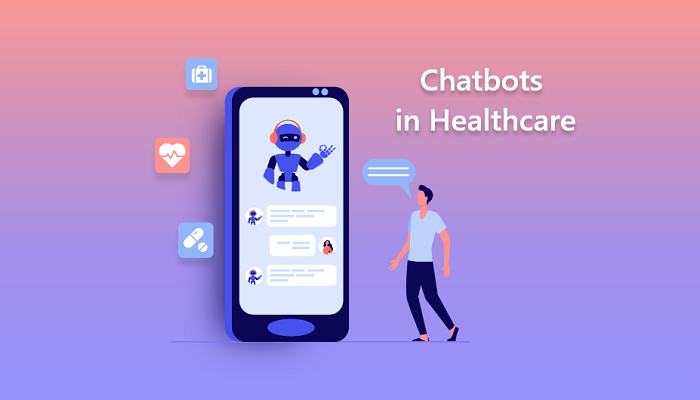Before COVID-19, the healthcare industry lagged behind the rest of the world in tech adoption. This all changed with the pandemic, as hospitals quickly adopted virtual diagnostic and telemedicine apps to deal with the crisis. One of the innovations that cropped up was the introduction of the AI chatbot for healthcare companies. A health chatbot can truly revolutionize the way we approach medicine and patient care (here at the link, you can find a complete guide by Topflight Apps). Let’s take a quick look at the history and future of chatbots in the healthcare industry.
What is an AI chatbot for Healthcare?
Healthcare chatbots run on the rules of machine learning and artificial intelligence. A medical chatbot app can interact with patients and carry out repetitive tasks like sending emails, resulting in analysis, answering questions, or providing solutions to patients.
The use of chatbot technology in healthcare really originated during the COVID-19 pandemic. Doctors, nurses, and administrative staff were under considerable strain and didn’t have time to complete the many simple and monotonous tasks that were taking up their time. Chatbots have worked in the retail industry and customer service sectors for years, reducing the number of time workers spend performing monotonous tasks. By deploying them in the healthcare sector, healthcare staff could leave the simple and repetitive work to the bots and focus on the more critical and complex work they needed to do.
Patients don’t need to wait in line for hours to have their queries answered or appointments booked – chatbots can do that. It provides more experience for patients than ever before.
The Benefits of Chatbots
Using an artificial intelligence healthcare chatbot system has benefits for doctors and patients alike:
- Availability: Hiring staff to man the phones around the clock isn’t feasible. Not all calls will be emergencies, either. A chatbot is available at all times to answer any query you may have.
- Critical information: Chatbots can provide information instantly when every second counts, including collecting information about previous records, allergies, and more.
- Building rapport with customers: Chatbots can exchange pleasantries, offer a warm greeting, and steer customers through a self-help website. They can also escalate queries that are more urgent.
What can chatbots do for your hospital?
Chatbots can carry out a number of functions in your business, depending on your needs. Here are just a few:
-
Scheduling appointments
Patients can book appointments at any time directly from the chatbot. The bots can assign a doctor to a patient, send emails with patient information or completed questionnaires, and book a slot in the doctor’s calendar and the patient’s calendar. This will reduce stress and effort on everyone’s part.
-
Checking for symptoms
Patients can check symptoms on a healthcare chatbot to measure the severity of the situation. The chatbot will remember the patient’s details, so they don’t need to keep entering information every time.
-
Providing support and information
Some patients keep calling with the same set of basic questions, so having an infinitely patient and well-informed chatbot to answer queries can be valuable. They have the responsibility of managing additional queries and reducing calls. Chatbots are also helpful to healthcare providers who need to access patient information quickly.
-
Claims and coverage checks
Patients can check their existing coverage and file for claims through their chatbot, which has all of their information ready. This will also make it easier for doctors and payers to pre-authorize billing payments and other requests.
-
Providing a better patient experience
Doctors can’t always pick up the phone when we need them to, but a chatbot can cover as many patient queries as you need them to and virtually never go offline. They can manage the tasks previously left up to humans, including booking appointments, and never go on vacation or have a bad day.
-
Mental health assistance
There have been some experiments with chatbots in therapy. Bots can offer a sympathetic ear or raise the alarm concerning mental health scenarios. While they can’t provide counseling, they can point people in distress toward the resources they need.
Now you know all of the uses of an AI chatbot for healthcare, wouldn’t you like to use one of your own? Reach out if you would like more information about creating a smart chatbot for your business (find out the explicit details in this article).


















